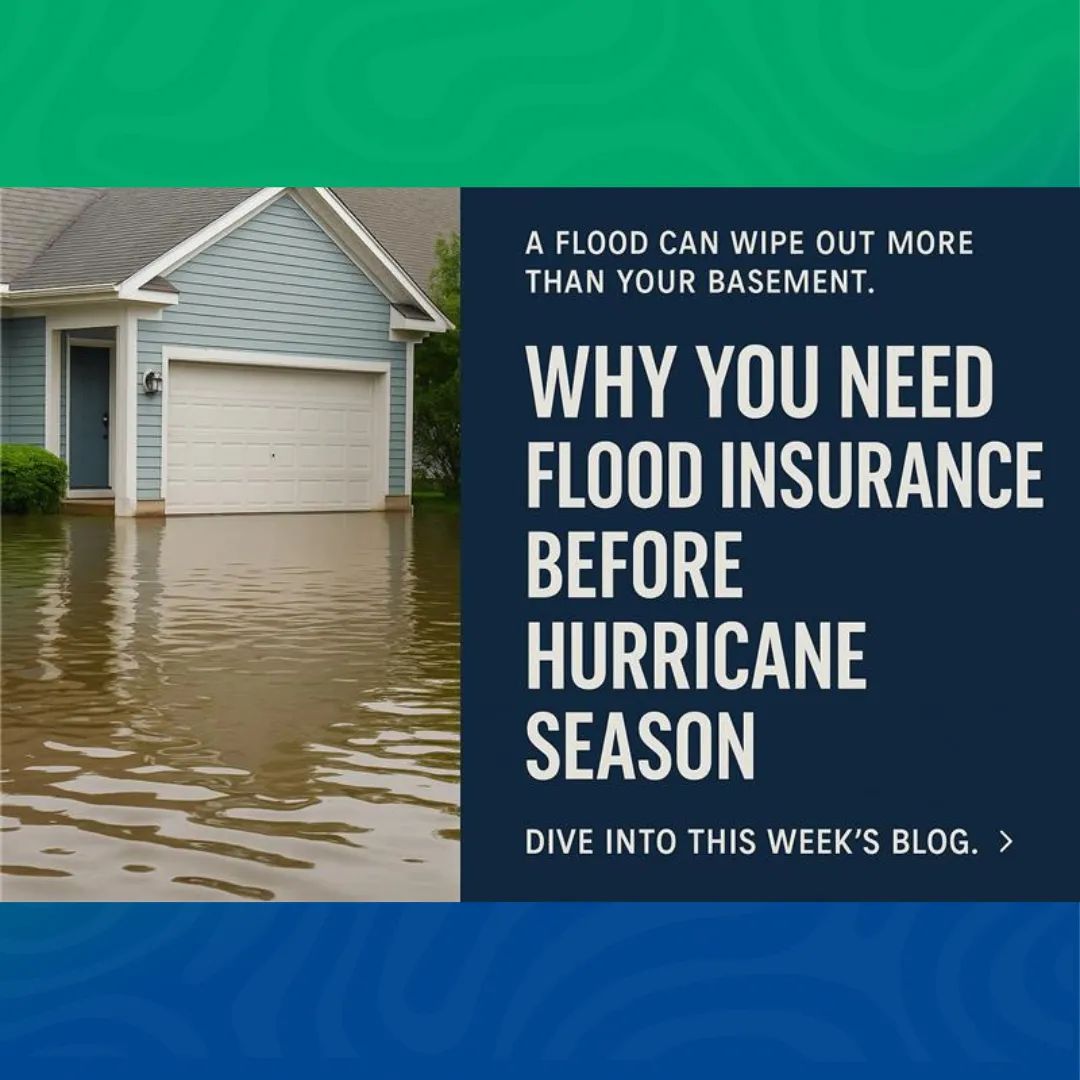
Why Flood Insurance Is Essential in 2025 Before the Next Storm Hits
If you’re a homeowner in Georgia, whether you’re in Atlanta, Decatur, Macon, or any suburb in between, you’ve likely noticed that storms are becoming more intense. Rain lingers longer, storm drains overflow faster, and flash floods are striking places we never expected. With hurricane season 2025 around the corner, this is the time to ask yourself a serious question:
Is your home truly protected from flood damage?
The answer might surprise you.
What Homeowners Insurance Doesn’t Cover
Here’s a myth that still catches too many homeowners off guard: “My regular home insurance covers all kinds of water damage.” It doesn’t.
Most standard homeowners insurance policies exclude flood damage. If water enters your home from the ground up due to rain, storm surge, or poor drainage, your insurer will likely deny the claim. That means the cost of replacing flooring, drywall, appliances, or furniture—upwards of $25,000—falls on you.

Flood Risk Goes Beyond the Map
Many Georgia residents assume flood insurance only matters if you’re in a high-risk zone, as shown on FEMA’s flood zone maps. But more than 20 percent of flood claims come from homes outside of those areas.
Take a homeowner in DeKalb County, for instance. In 2024, a thunderstorm stalled over her street, dropped four inches of rain, and flooded her finished basement. Her home wasn’t in a flood zone. She didn’t have flood insurance. Her home insurance denied the claim. She paid over $30,000 out of pocket.
That's why flood insurance is now recommended for nearly every Georgia homeowner, not just coastal residents.
Flooding in Georgia Is Changing Fast
In 2025, flooding in Georgia isn’t just caused by hurricanes. Short, intense rainstorms are causing street flooding and backups in neighborhoods that never used to flood. Some examples from this year:
Homes in East Point flooded after three inches of rain in one hour
A retention pond in Gwinnett overflowed and backed into residential garages
Older neighborhoods in Atlanta saw sewer backups ruin basements
These aren't once-in-a-decade events anymore. They’re happening several times a year. That’s why property insurance for floods is an urgent conversation, not a distant “maybe.”

What Flood Insurance Covers
A flood insurance policy covers both structural and personal property losses due to rising water. Here’s what that typically includes:
Building coverage:
Foundation, walls, and insulation
Electrical and plumbing systems
Central air, water heaters, and HVAC
Built-in appliances and flooring
Contents coverage:
Furniture, clothing, and electronics
Washers, dryers, and valuables (within limits)
Policies are available through the National Flood Insurance Program (NFIP) or private carriers. Private insurers often offer quicker payout options, higher coverage limits, and customizable protection.
The Cost of Flood Insurance in Georgia
Many are surprised by how affordable flood insurance is. In low-to-moderate risk areas, premiums can range from $400 to $600 annually—around $40 to $50 per month. High-risk areas will cost more, but the protection is substantial.
Some insurance carriers allow you to bundle flood with your homeowners or auto insurance, helping you save even more.
There’s a standard 30-day waiting period before new policies become active, so timing matters. If you wait until a storm is in the forecast, it’s too late to get protected.

Do You Need Flood Insurance If You're Not Near Water?
Yes. You don’t need to live near a river or lake to flood.
If your property is on a slope, has a basement, sits below street level, or is in a neighborhood with aging infrastructure, your home is at risk. With Georgia’s clay soil and rapid development, drainage problems are common even in newly built neighborhoods.
If you’ve ever had runoff issues, water pooling, or a backup during storms, it’s worth speaking with a flood insurance specialist.
Flood Insurance Brings Confidence, Not Just Coverage
Your home is your largest investment. And protecting it from the unexpected isn’t just smart, it’s essential.
Whether you’ve remodeled your home, installed expensive systems, or built a basement apartment, flood insurance protects more than your property—it protects your time, your savings, and your peace of mind.
And if you’re a renter or condo owner, you’re not excluded. Renters can get contents-only flood policies. Condo owners can secure coverage even when the HOA carries building insurance.
Take the Next Step Before the Storm Hits
At OnePoint Insurance, we help Georgia homeowners assess flood risk, compare policy options, and build the right plan for their homes. We work with both NFIP and private markets to give you the best fit for your needs.
You can:
Bundle flood with home or auto
Get help understanding elevation certificates or mitigation discounts
Flood insurance takes effect in 30 days. Don’t wait until the water is rising.
Want more helpful insurance tips like this? Visit our blog library and share this article with a friend or neighbor who needs to know.
Your home deserves to be protected. Let’s talk today.
